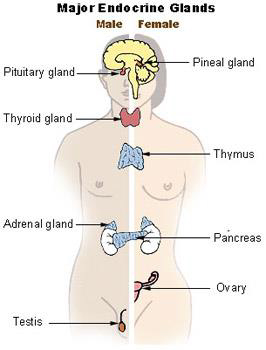Joseph R. Anticaglia MD
Medical Advisory Board
Proteins perform a variety of functions. We need them to repair a cut finger and to stop bleeding. We need them to turbo charge digestion and to transport oxygen to every cell and tissue in the body. We need proteins to provide energy when our diet is inadequate. We need them to stand up and sit down.
Proteins are made up of amino acids, some of which we must get from foods while others are manufactured by our bodies. What appears below is a selective list of proteins with their primary job responsibility
Function of Designer Proteins
Antibodies
Antibodies are proteins that recognize and combat foreign invaders. The unwanted invaders can vary from cancer to pollens. They fight infections and diseases (bacteria, viruses, fungi).
It’s a team effort with ‘lookout’ antibodies identifying the enemy, relaying the information to the command center, which in turn dispatches killer antibodies to destroy the enemy. It’s a highly sophisticated department of defense whose mission is to protect and defend the body.
Structural Support
Structural proteins influence the architecture and support of the body. These proteins develop into bone and muscle.
Collagen is a support protein that attaches muscle to bone. Ligaments are proteins that hold the bones together. We need support proteins to get up from a chair and to reach for a glass of water.
Keratin is the protein that protects and provides strength to hair, nails and the outermost layer of skin. They don’t break down when we expose them to hot water when washing our hands or taking a shower. Skin fights off and protects us from a variety of substances, from the ink of a ball point pen to unwanted bacteria
Repair and Maintenance
Proteins are indispensible in repairing, building and maintaining body tissues. Children, during their development, need more protein in their diet to grow into strong and healthy youngsters.
Have you wondered after you’ve cut yourself, how the body stops the bleeding? The repair and maintenance unit in the body responds to such emergencies.
The liver produces the soluble protein fibrinogen which circulates throughout the body in the blood plasma. When there is bleeding, fibrinogen forms long fibrous strands of fibrin at the injured site. It is the main protein in blood clots that helps stop the bleeding.
Endocrine Glands — Hormones
Endocrine glands are “chemical messengers” that keep our body in balance. They secrete hormones (proteins) directly into the bloodstream which travel to target cells.
The target cell can be thought of as a ‘lock’ and the hormone as a ‘key’ — If the key fits, the hormone joins the receptor cell and influences cell reactions. For example, insulin is secreted by the pancreas which regulates the level of glucose in the blood. The activities of hormones are much more complicated than noted here.

NIH Seer Model: Endocrine glands secrete hormones
Enzymes
All cells contain enzymes. These proteins digest food and speed up practically all of the thousands of chemical reactions that take place in the body. We need enzymes to turbo charge these reactions to stay alive. If a word ends in — ase — most likely it’s an enzyme. One example is lipase; it breaks down fats into smaller substances that we can use. Without enzymes, digestion would take too long
Energy
The body first uses carbohydrates and fats to meet its energy needs. Protein can be thought of as a back-up generator that’s turned on to supply energy when the diet is inadequate.
Transport and Storage
Hemoglobin is the oxygen-transporting protein found in red blood cells. When you breathe, the oxygen (from the air in the lungs) attaches to circulating hemoglobin and travels throughout the body bringing life to tissue and organs.
It’s critical that we get the right types of proteins and in the right amounts into our diet for our metabolism to function optimally and to prevent illness. They do marvelous work to link and coordinate the various functions of the body. They are the linchpins that make it all happen.
Jacob Berzelius, back in 1838, feeding off the work of G. J. Mulder, proposed the name protein from the Greek meaning “primary,” particularly as it relates to nutrition.
We need iron to make hemoglobin. A laboratory test indicates whether or not there’s enough iron stored in the body to make hemoglobin. If the level is low, it usually indicates a nutritional disorder that can result in iron deficiency anemia.
References
Krafts, Kristine P; Tissue Repair The Hidden Drama; Organogenesis, Oct-Dec, 2010
Anticaglia, Joseph R; Protein — The Essential Nutrient; HC Smart, 2017
Hall, John E, PhD; Guyton and Hall; Medical Physiology; 2016
Martz, Eric; Timeline of Protein Chemistry; April, 2002
This article is intended solely as a learning experience. Please consult your physician for diagnostic and treatment options.

